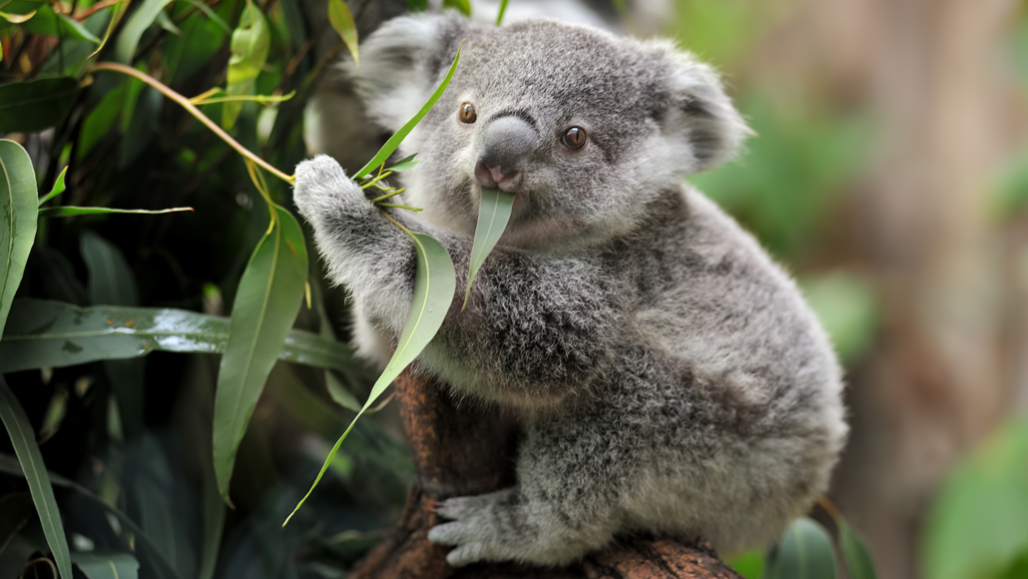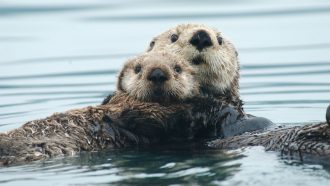caterpillar: The larval stage of moths and butterflies. Somewhat wormy-shaped crawlers, caterpillars tend to eat leaves and other plant bits. Some will, however, dine on other insects.
chemical: A substance formed from two or more atoms that unite (bond) in a fixed proportion and structure. For example, water is a chemical made when two hydrogen atoms bond to one oxygen atom. Its chemical formula is H2O. Chemical also can be an adjective to describe properties of materials that are the result of various reactions between different compounds.
diet: The foods and liquids ingested by an animal to provide the nutrition it needs to grow and maintain health. (verb) To adopt a specific food-intake plan for the purpose of controlling body weight.
eucalyptus: Several species of tall and aromatic trees found naturally only in Australia. Their wood is valued for timber. The oil found in the leaves has been used in medicine. And these trees are perhaps best known as the only thing adult koalas will eat.
fossil: Any preserved remains or traces of ancient life. There are many different types of fossils: The bones and other body parts of dinosaurs are called “body fossils.” Things like footprints are called “trace fossils.” Even specimens of dinosaur poop are fossils. The process of forming fossils is called fossilization.
fruit: A seed-containing reproductive organ in a plant.
herbivore: A creature that either exclusively or primarily eats plants.
infection: A disease that can spread from one organism to another. It’s usually caused by some type of germ.
insect: A type of arthropod that as an adult will have six segmented legs and three body parts: a head, thorax and abdomen. There are hundreds of thousands of insects, which include bees, beetles, flies and moths.
muscle: A type of tissue used to produce movement by contracting its cells, known as muscle fibers. Muscle is rich in protein, which is why predatory species seek prey containing lots of this tissue.
parasite: An organism that gets benefits from another species, called a host, but doesn’t provide that host any benefits. Classic examples of parasites include ticks, fleas and tapeworms.
predator: (adjective: predatory) A creature that preys on other animals for most or all of its food.
prey: (n.) Animal species eaten by others. (v.) To attack and eat another species.
toxin: A poison produced by living organisms, such as germs, bees, spiders, poison ivy and snakes.

